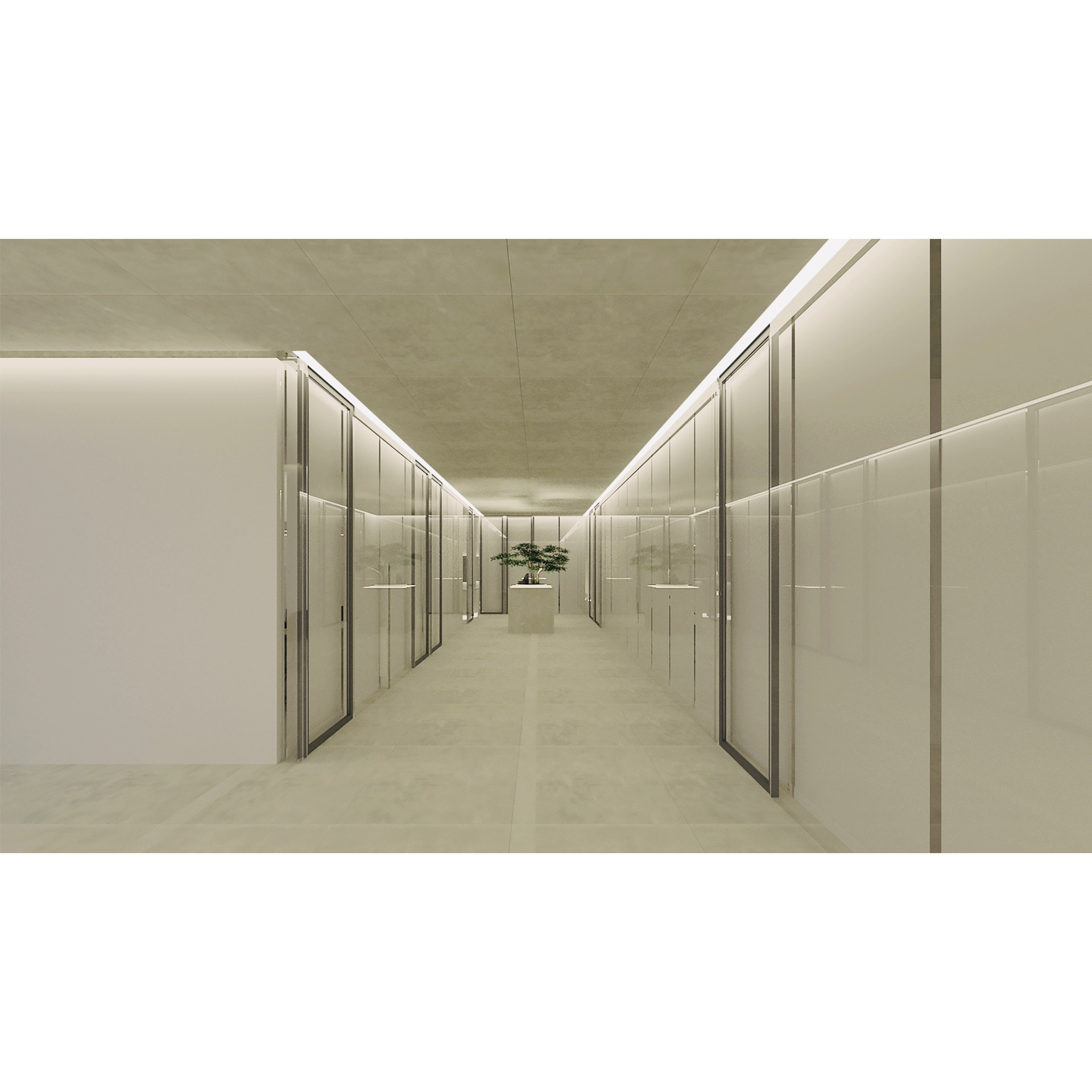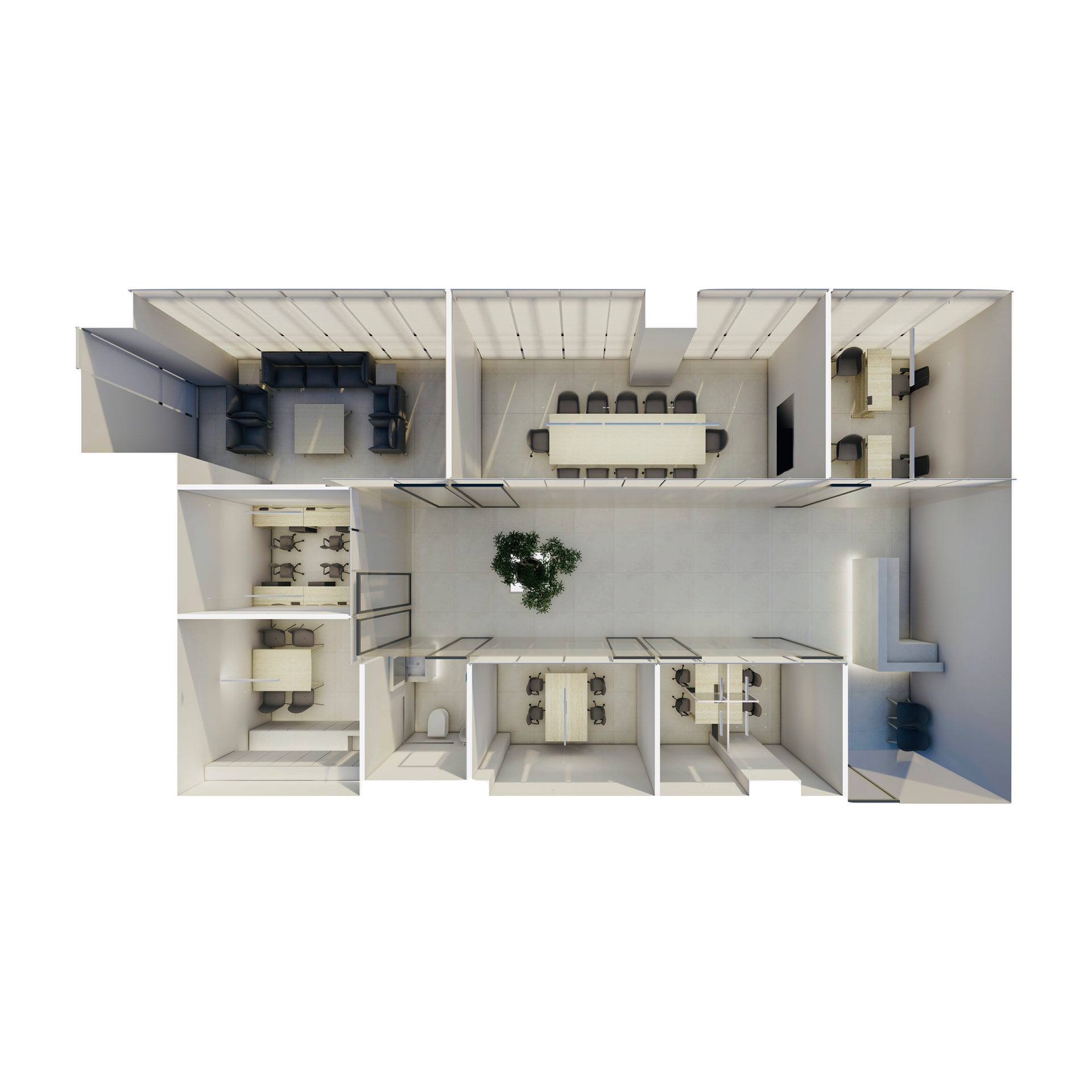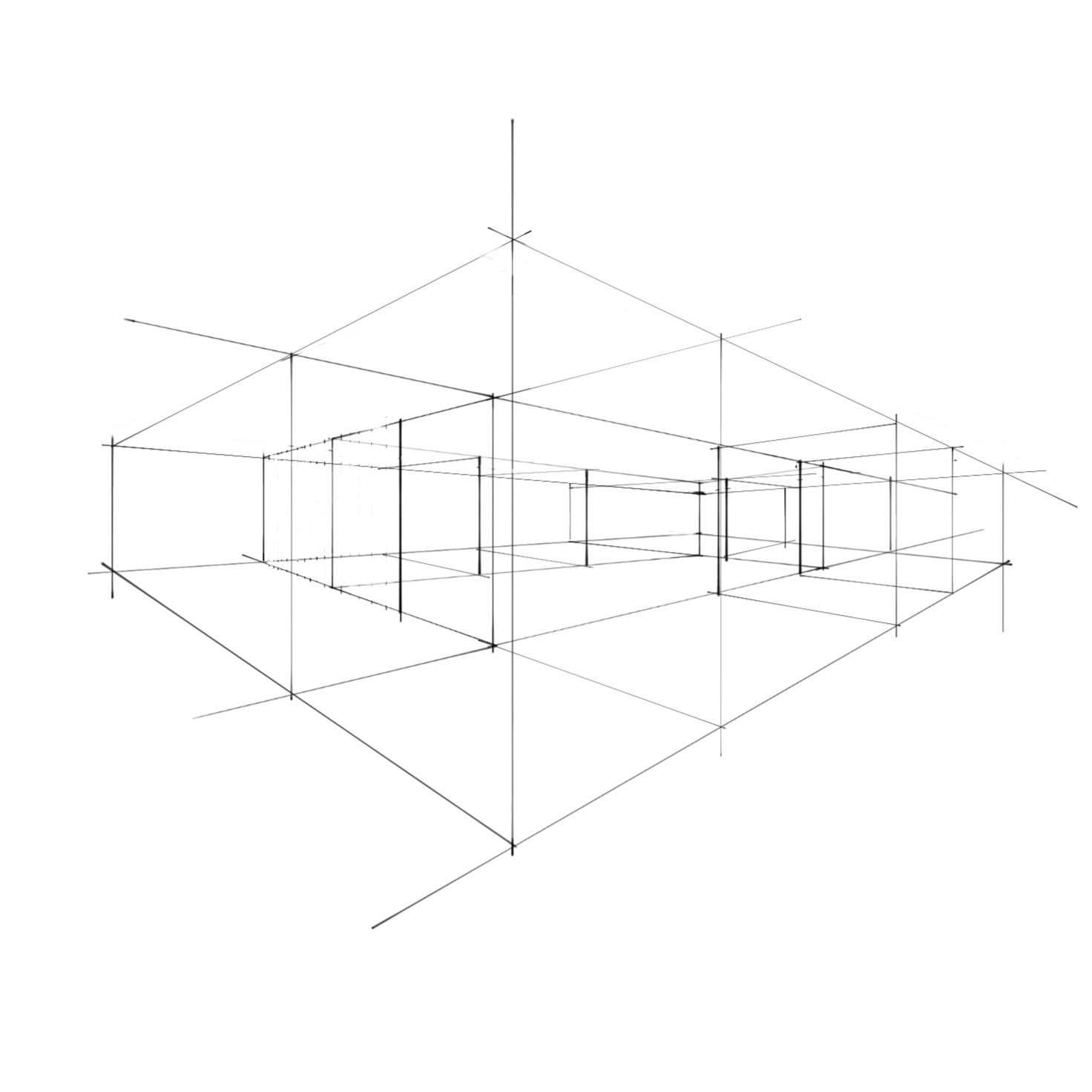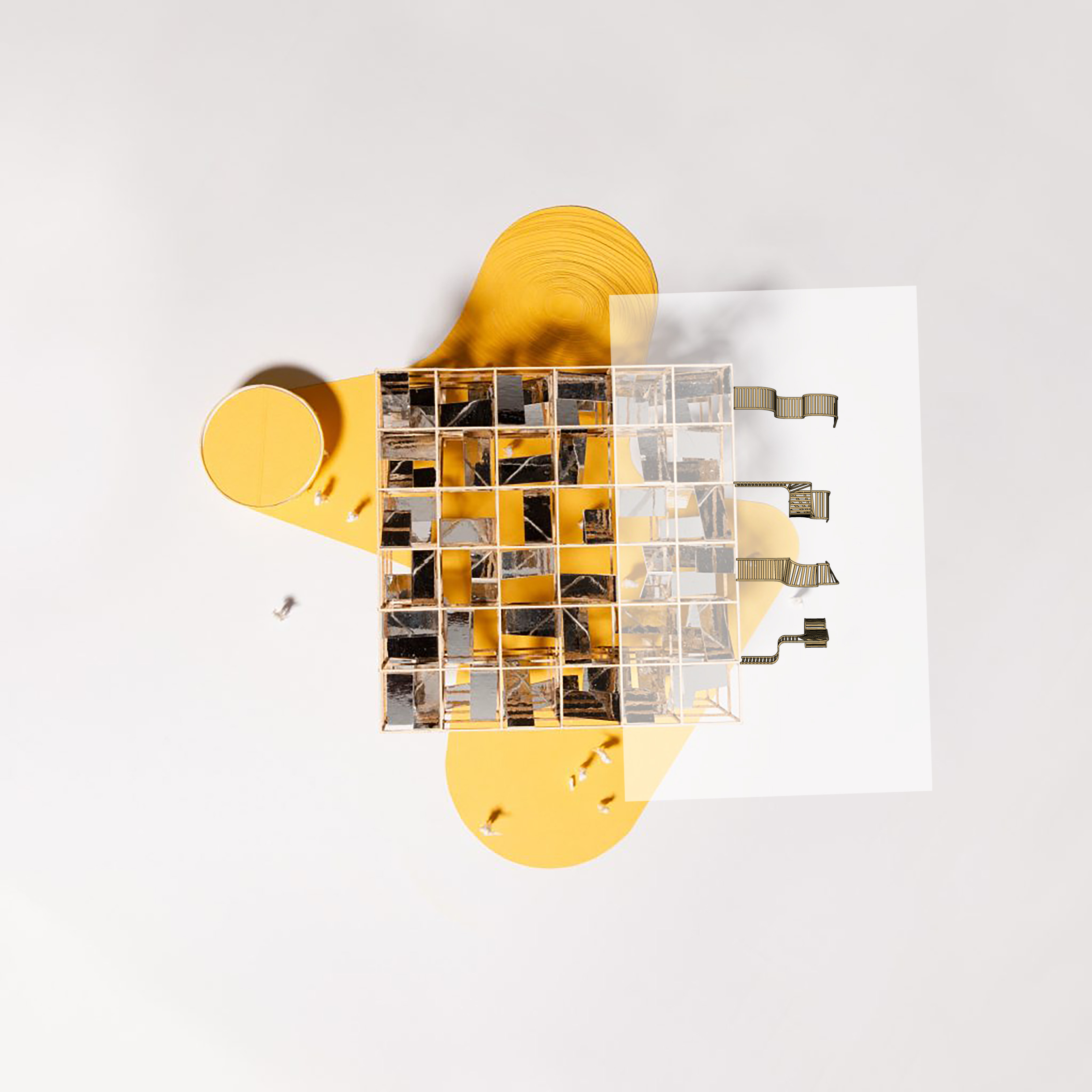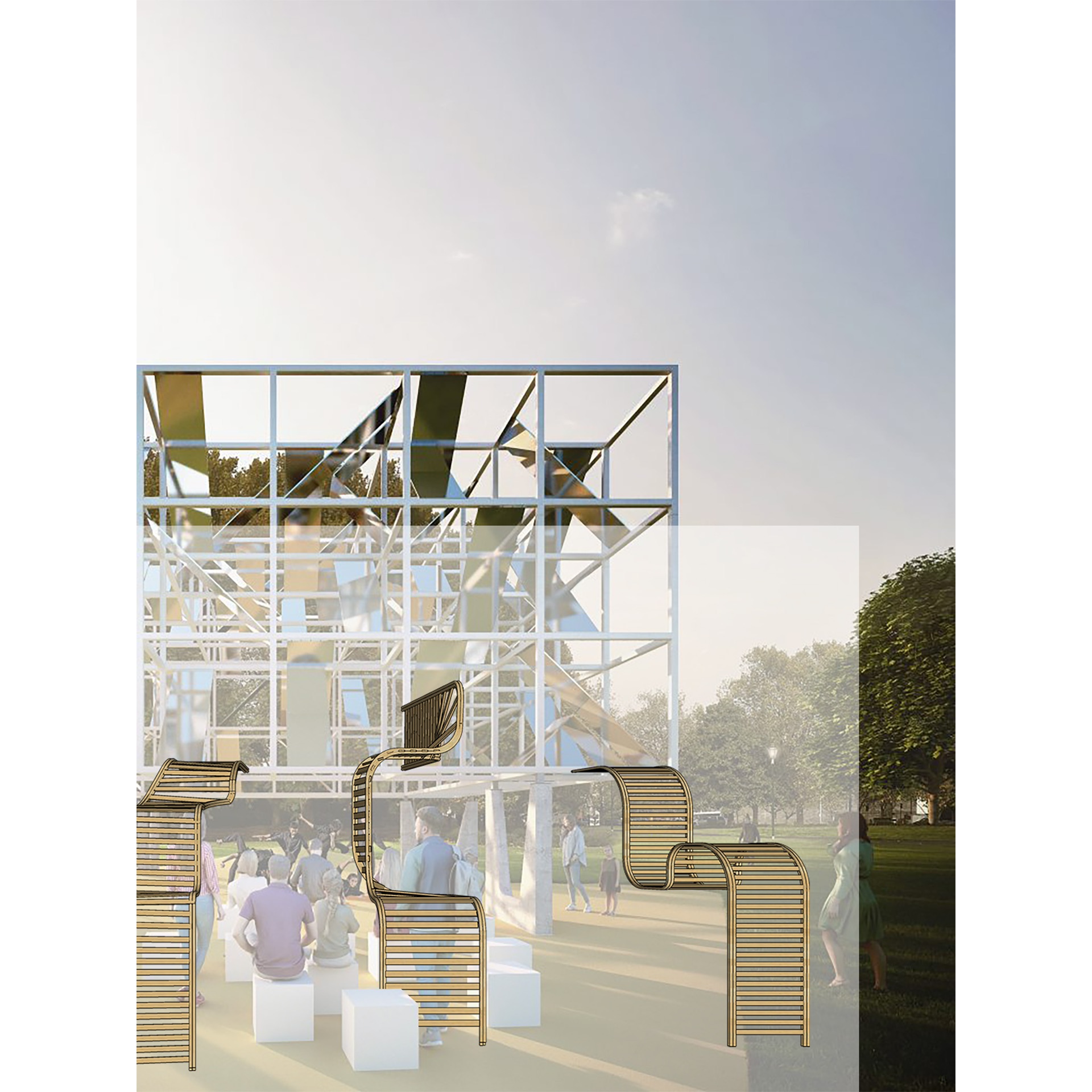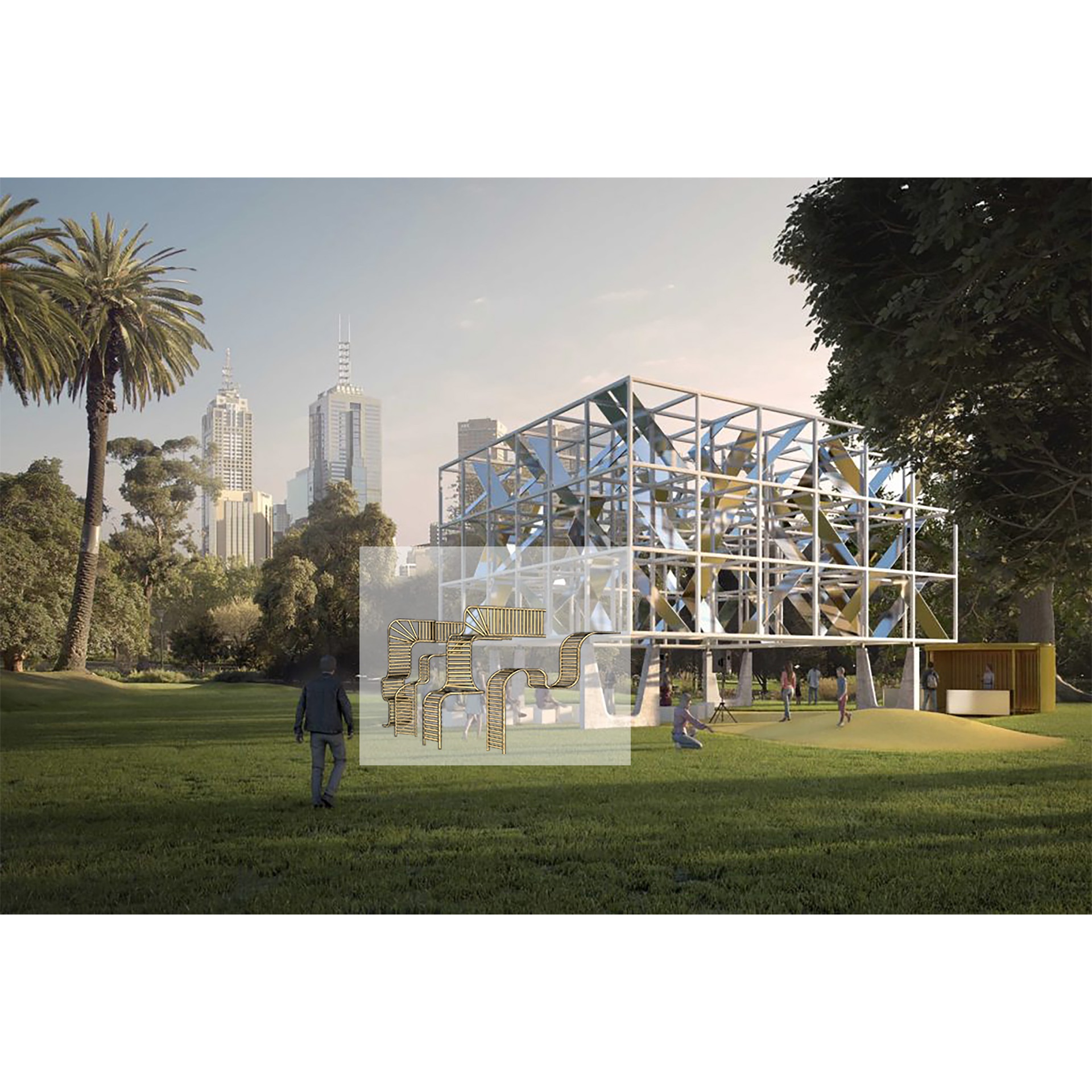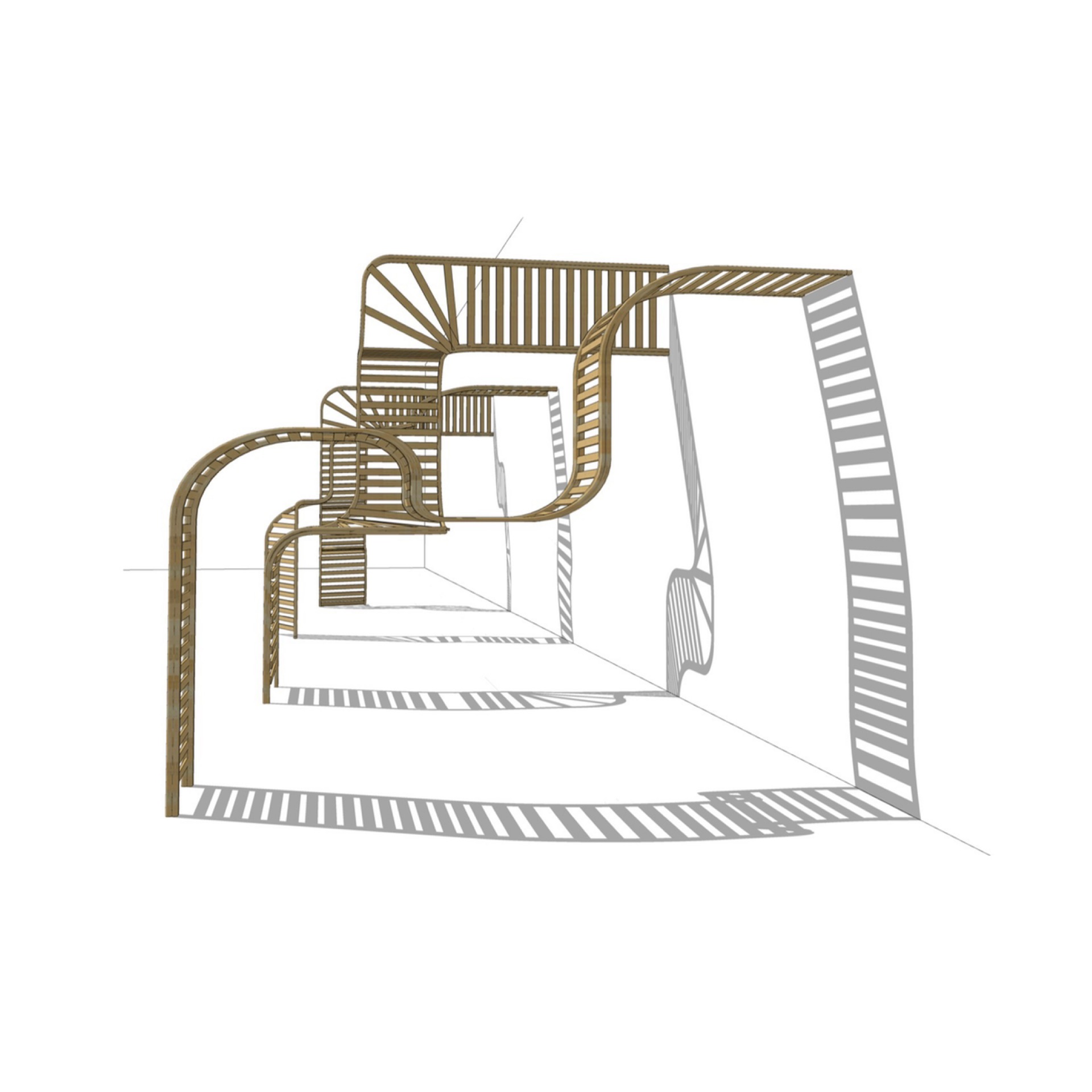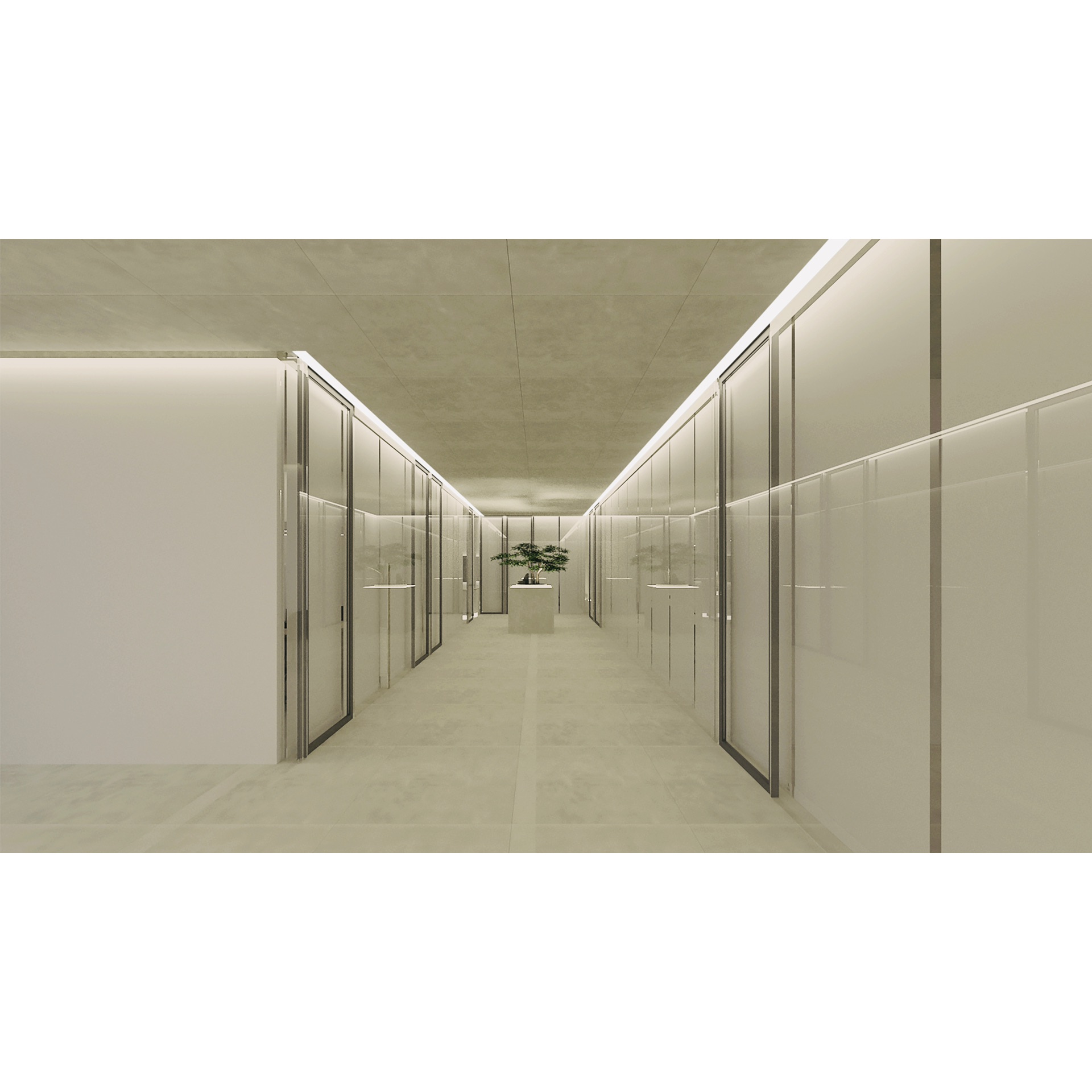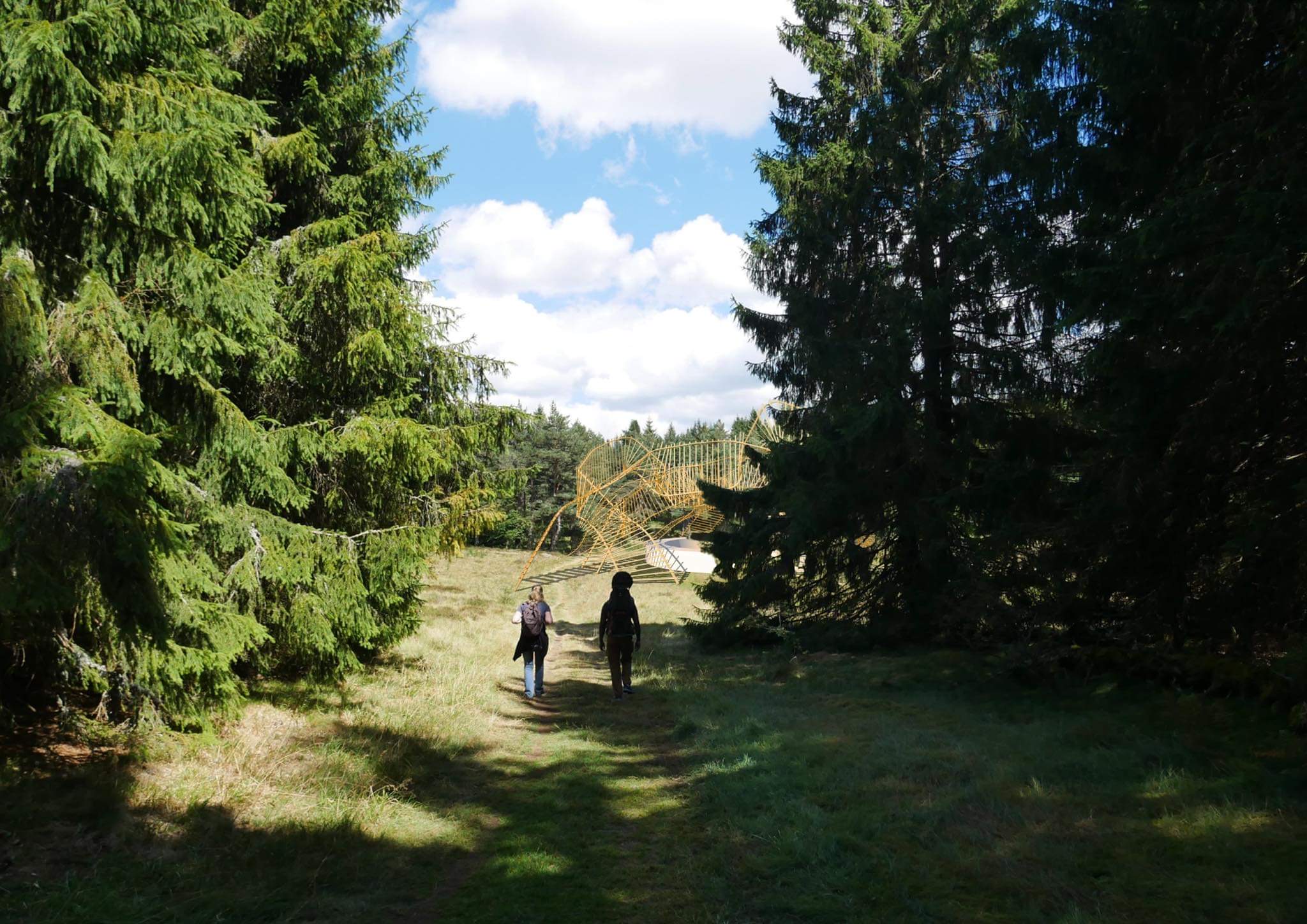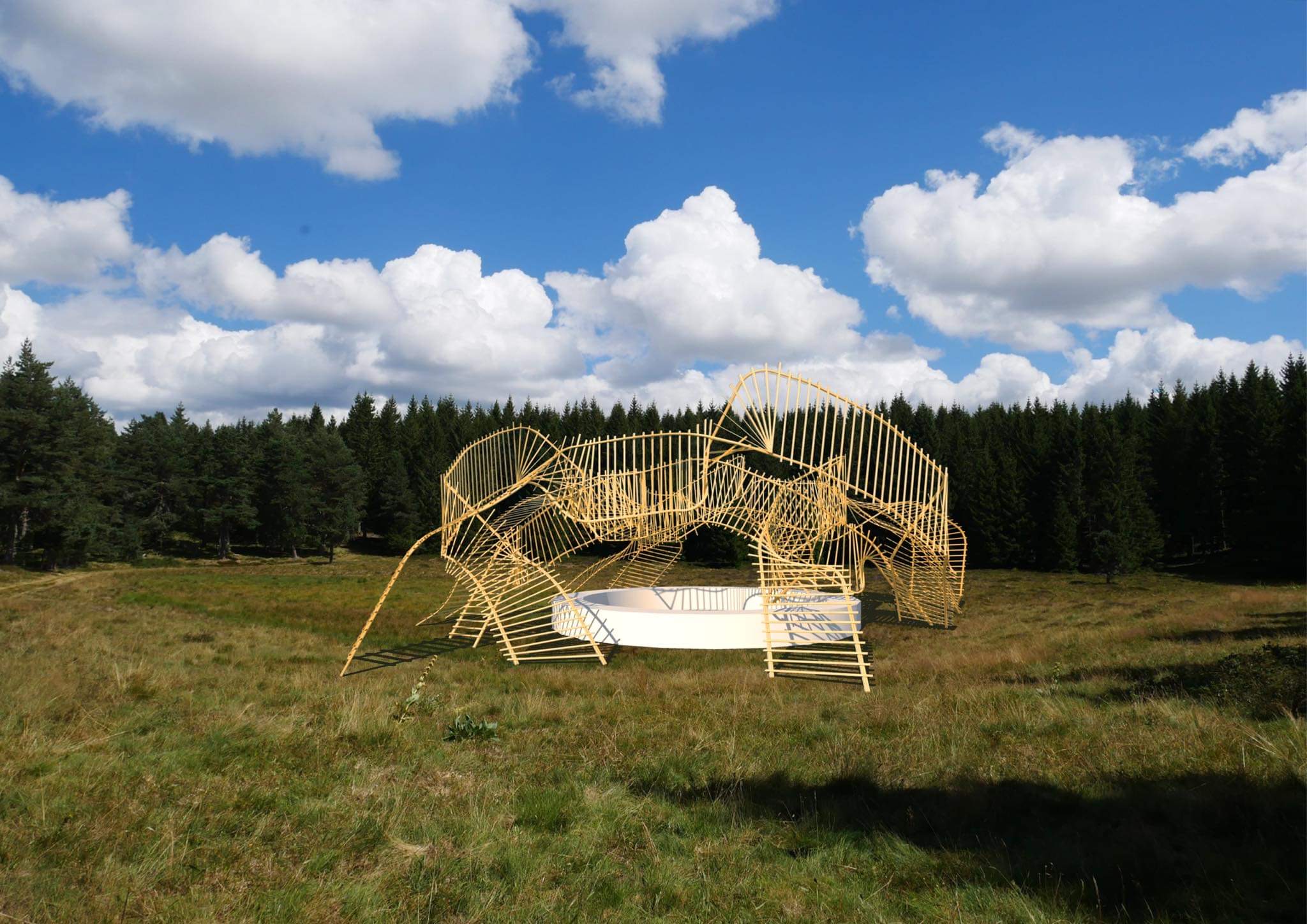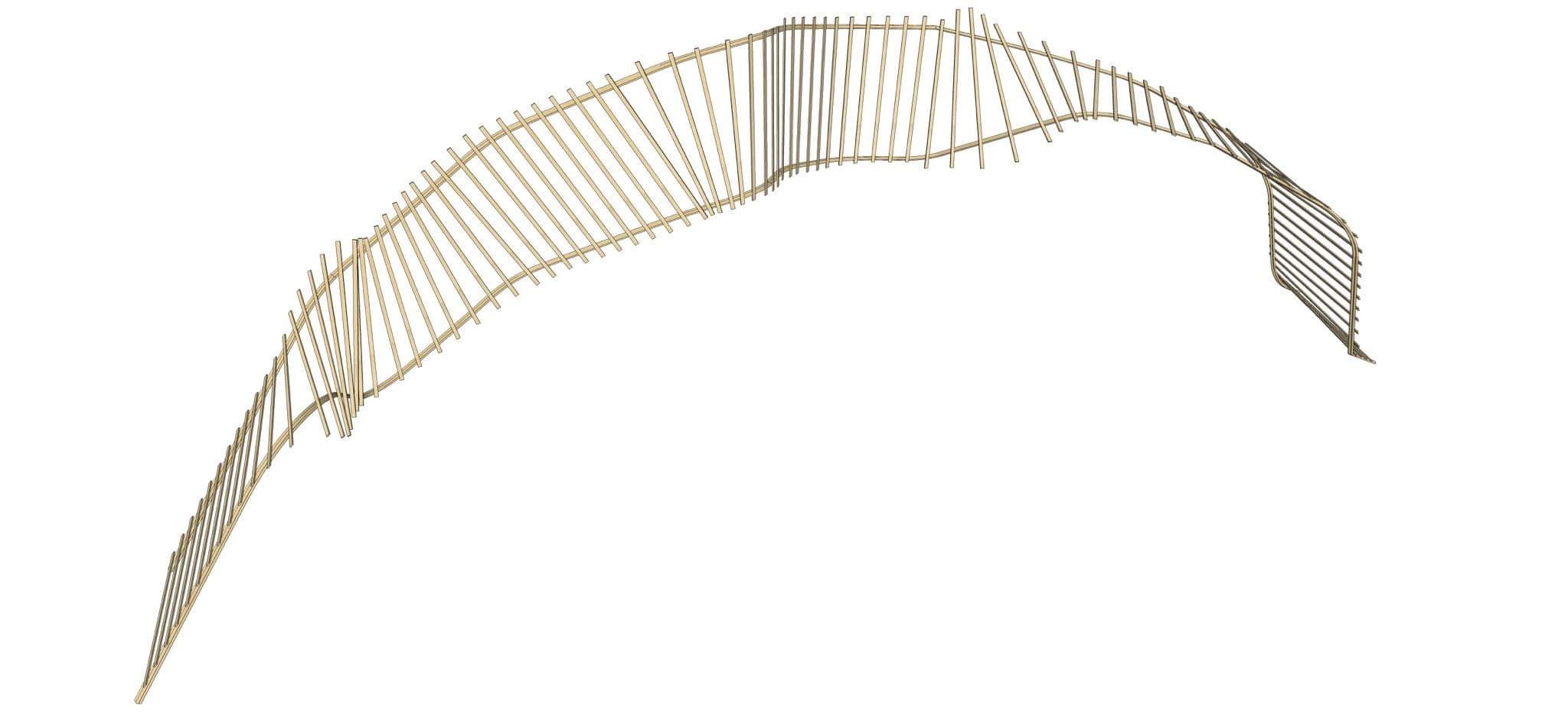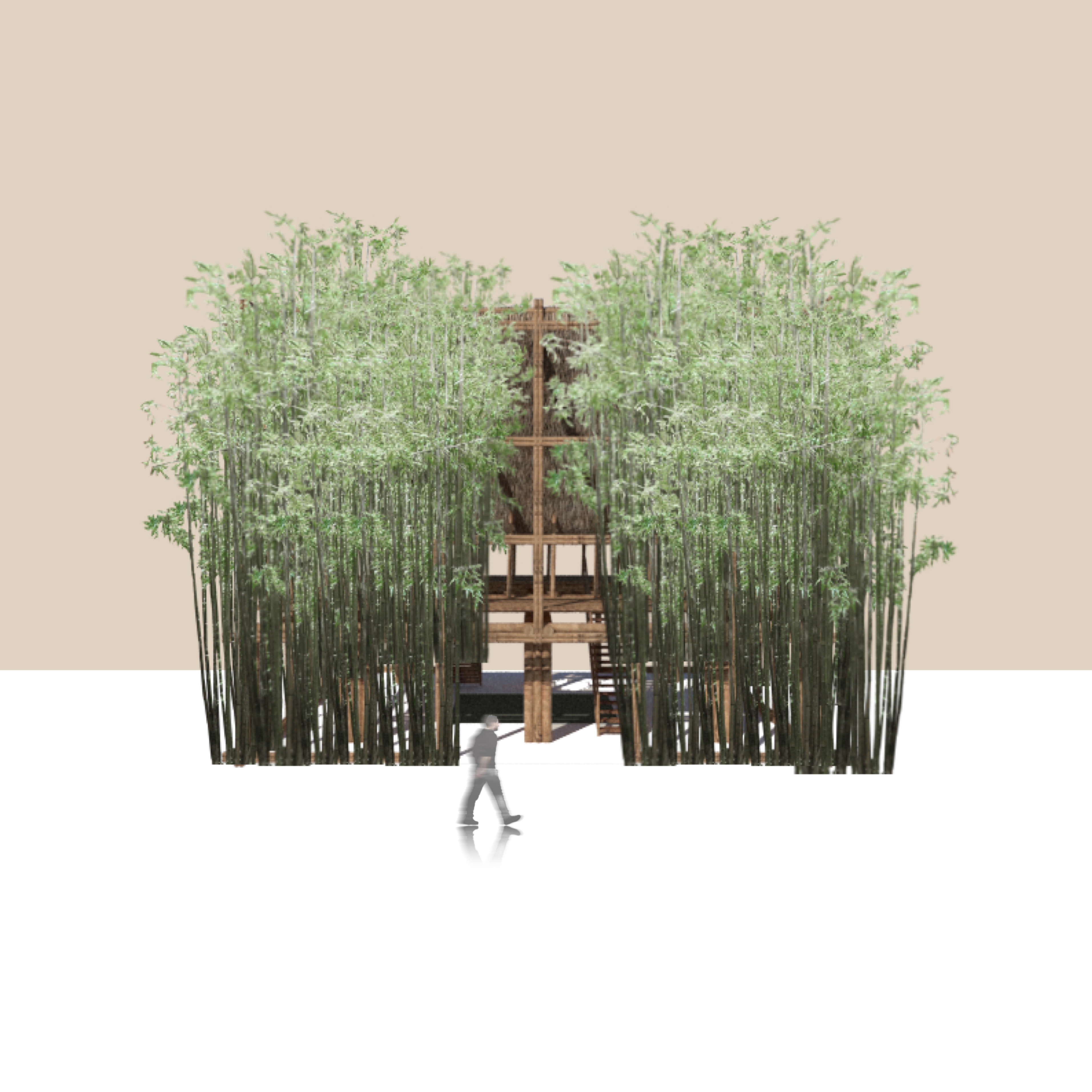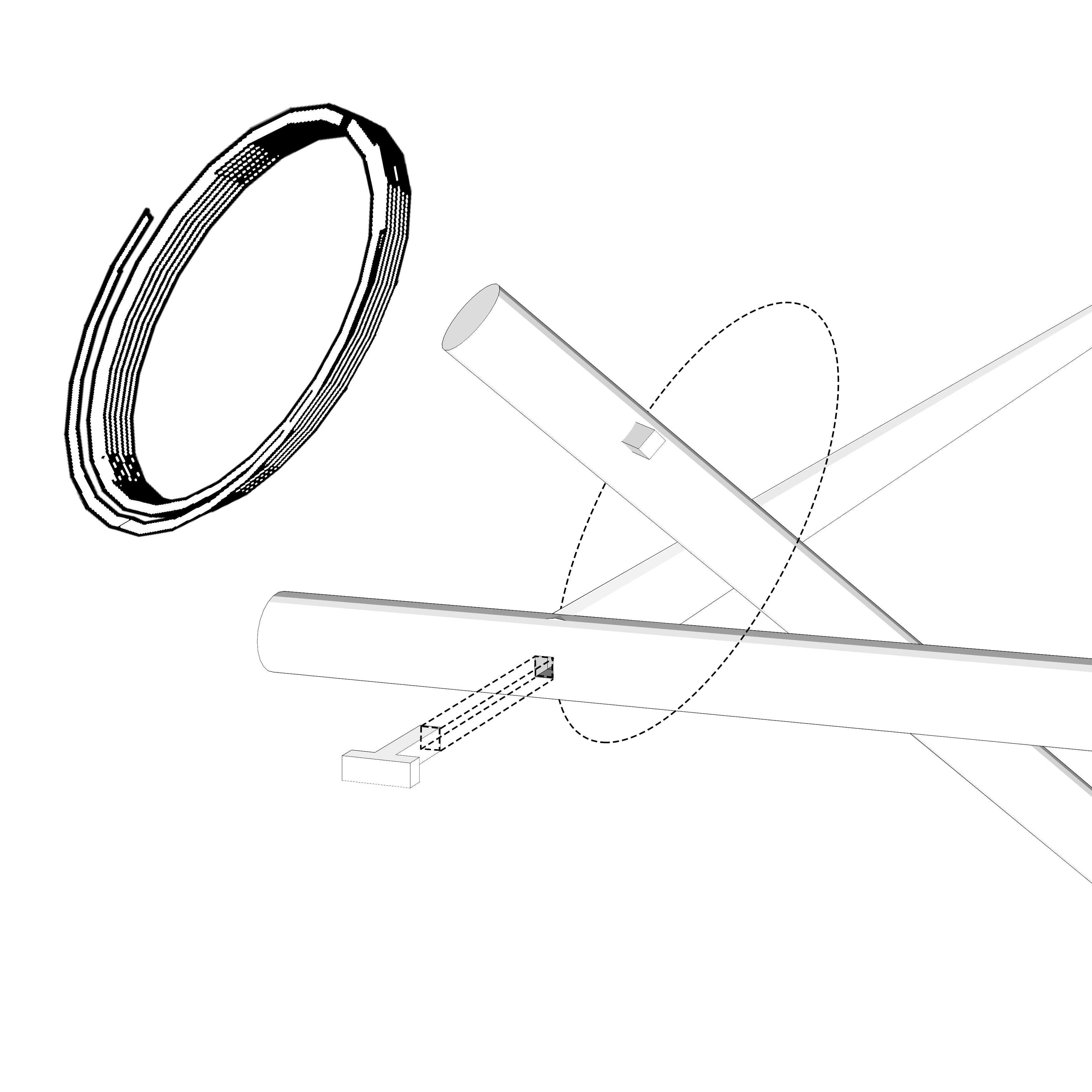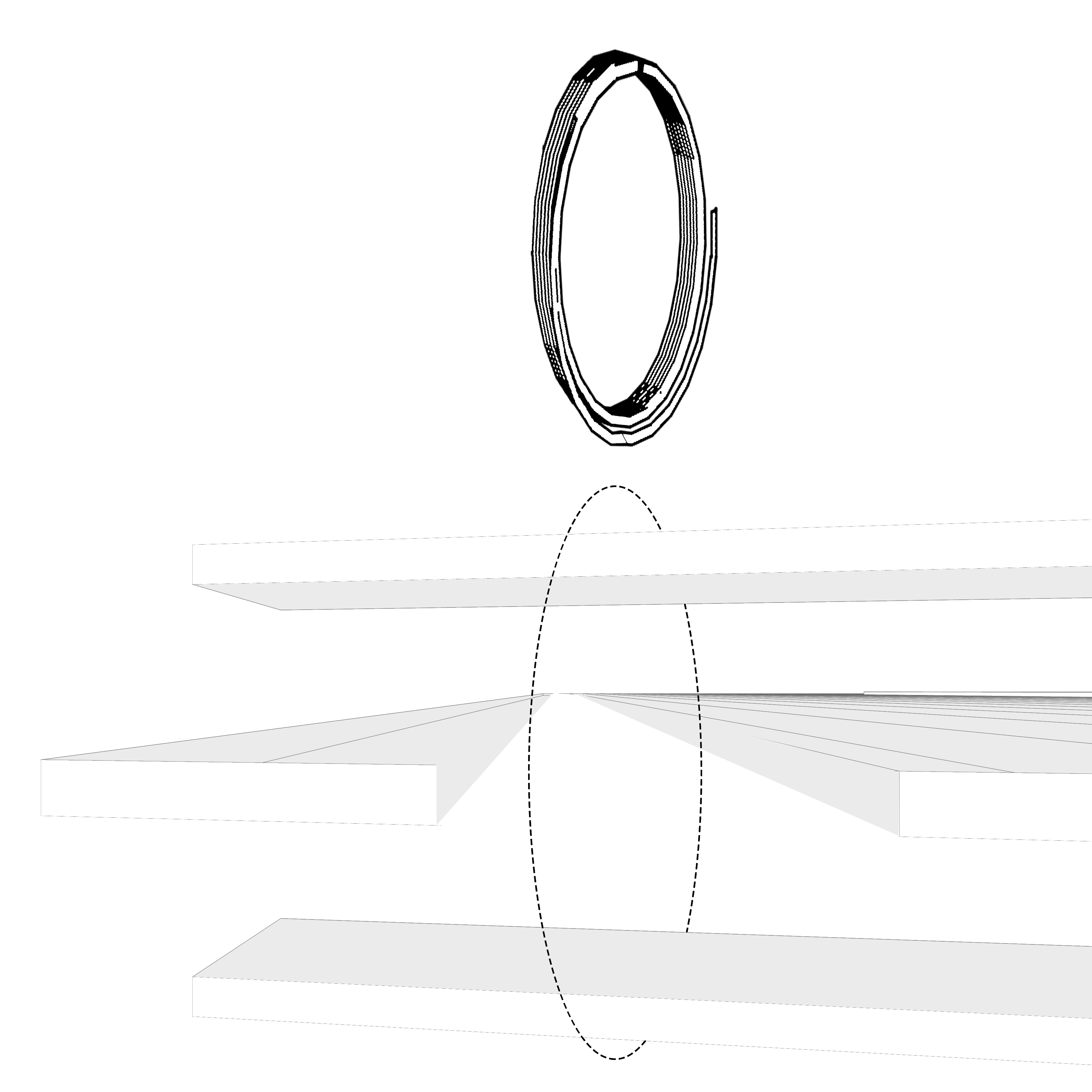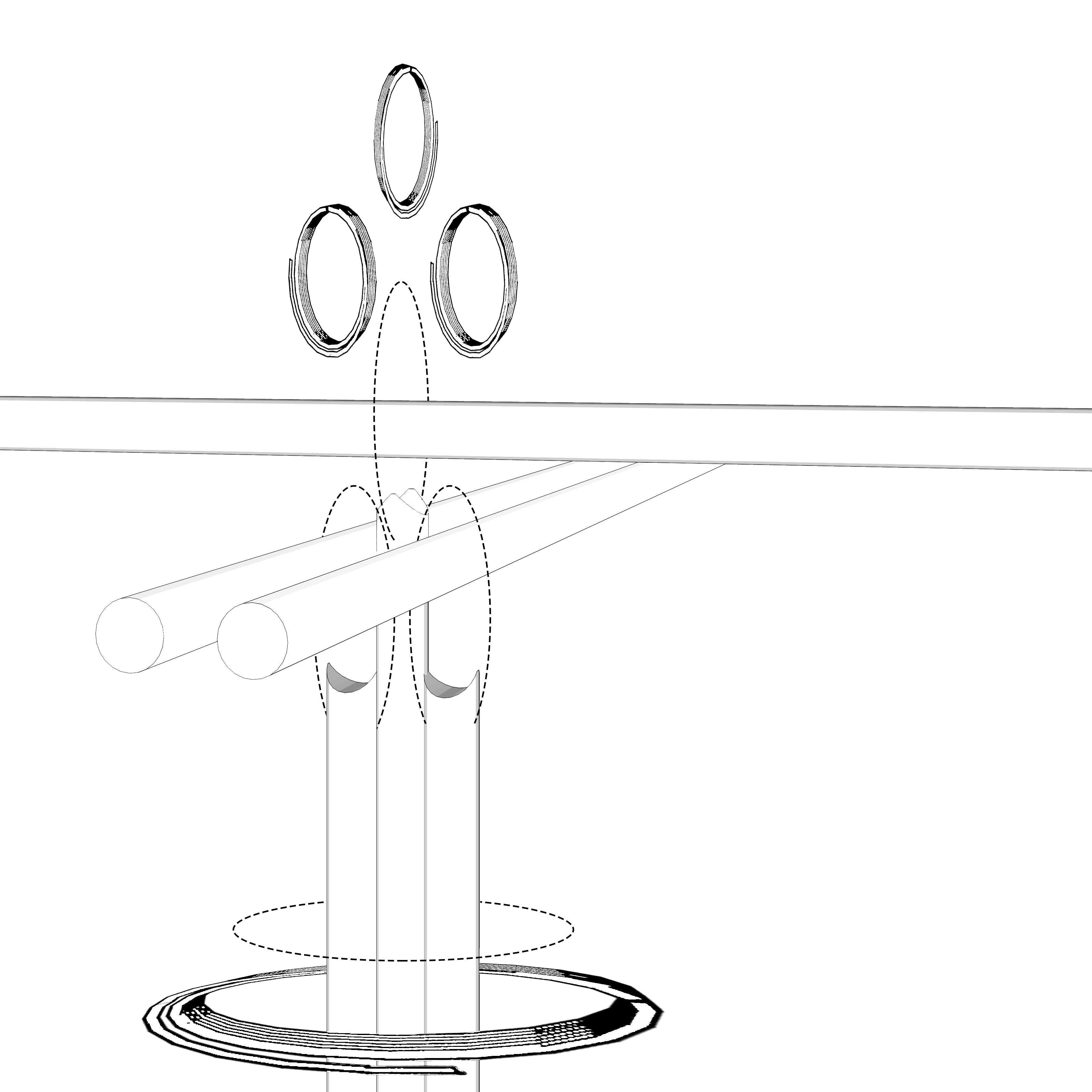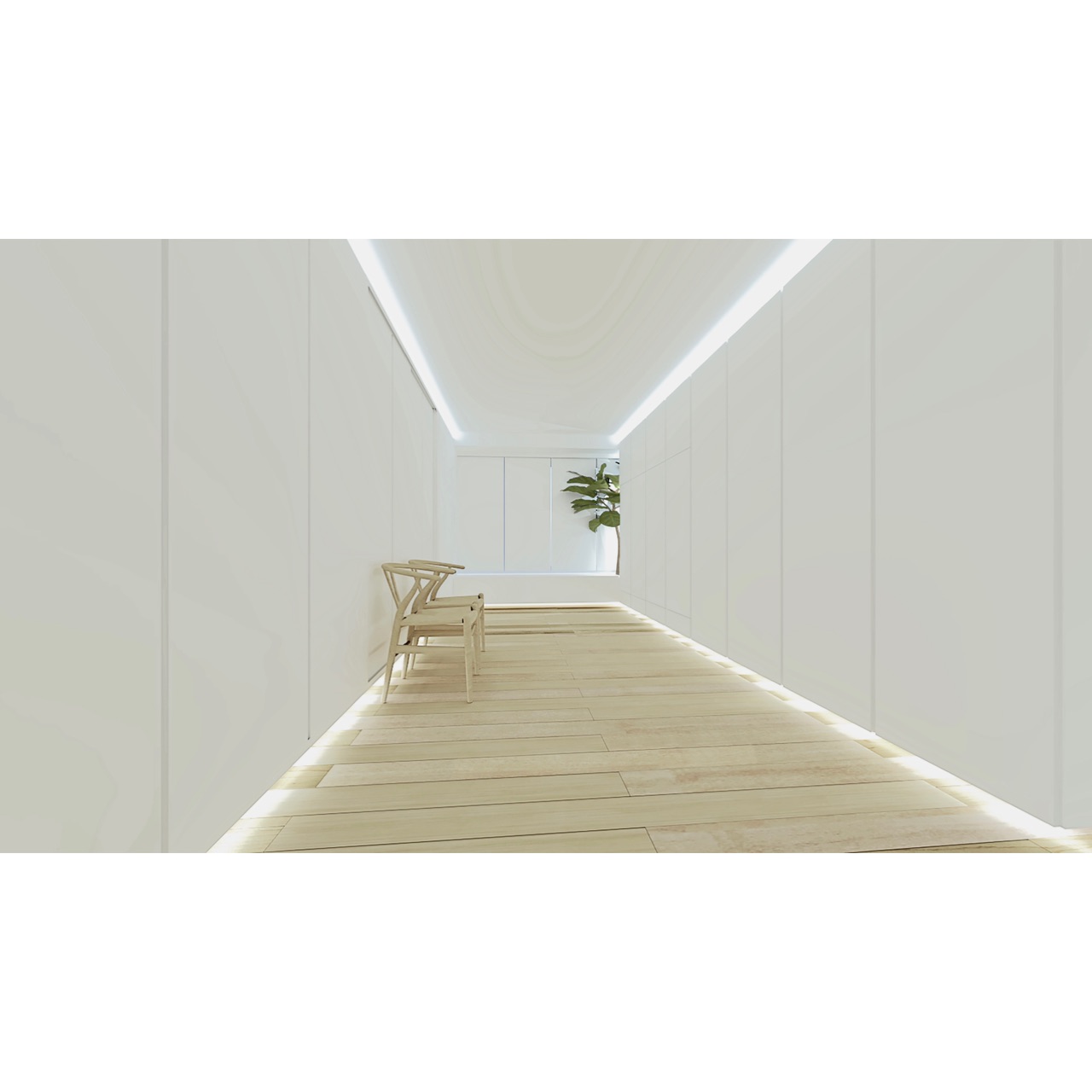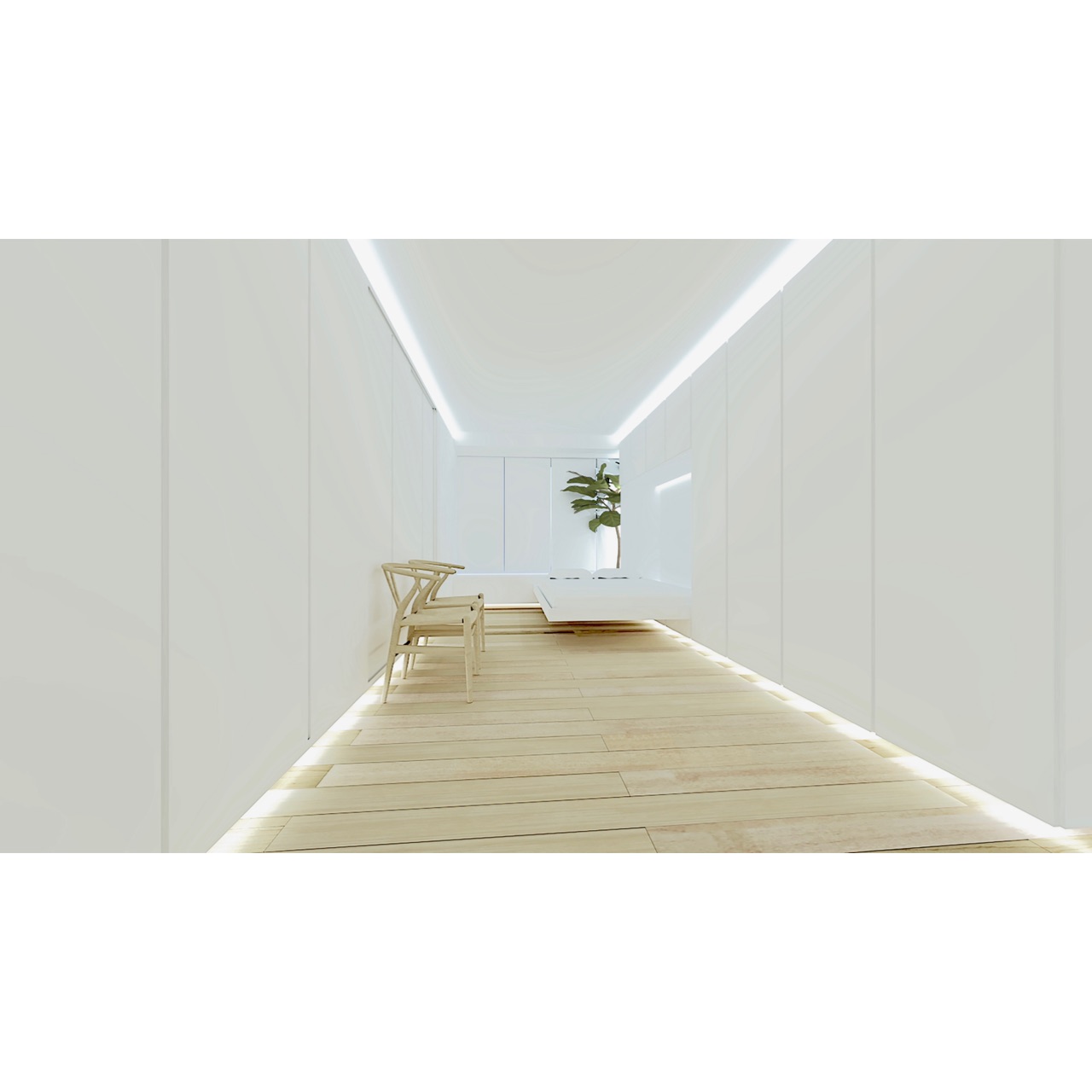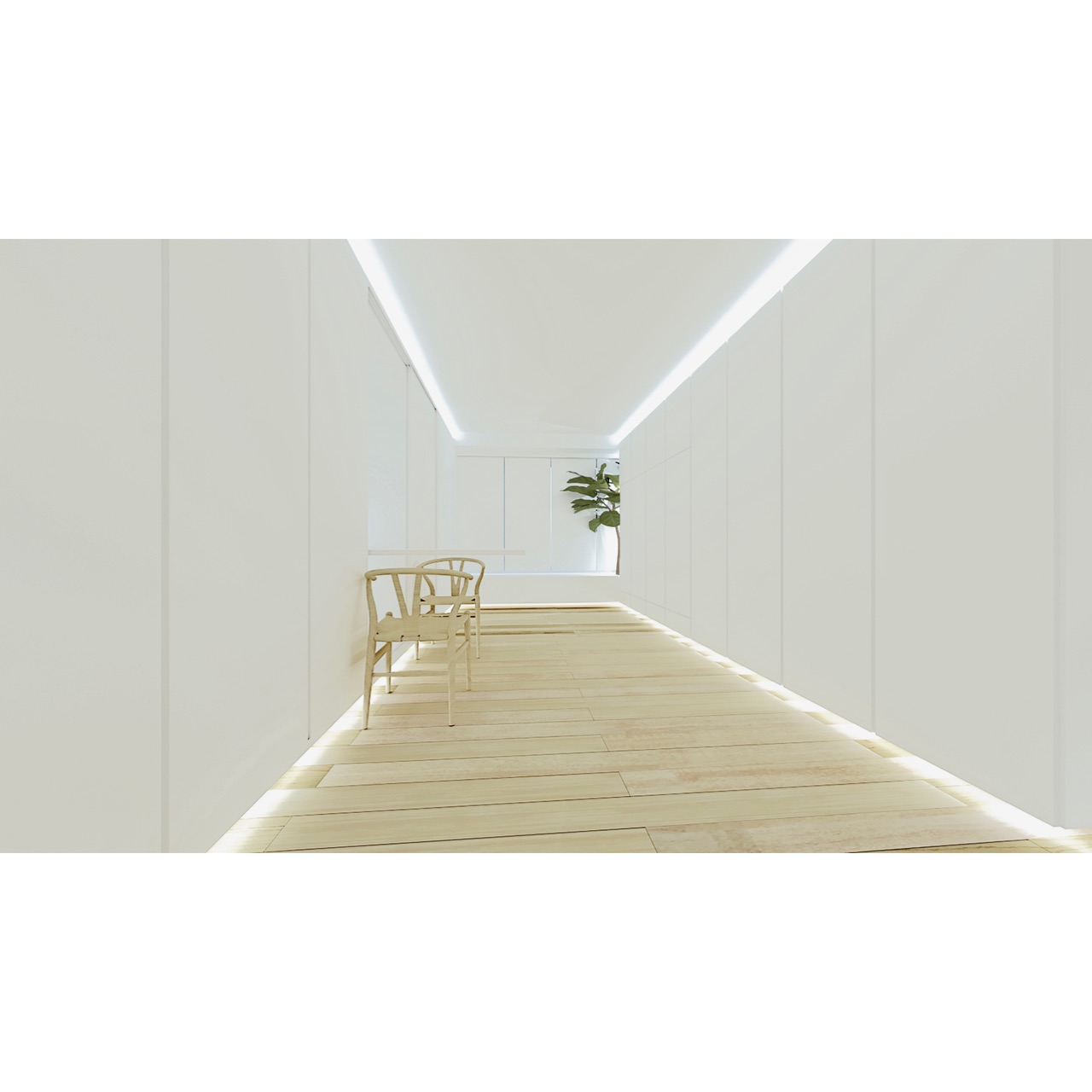B Office
A study in restraint, the design for this office aimed at stripping the space of its often weighty ‘connotations’ in order to arrive at the question ‘what makes an office an office?’
With purpose and preciseness, spatial programmes are rigorously pared to the basics with nary a stray from what is essential—with the only exception of the centrepiece in the courtyard that recalls the world outside this sanctuary of business. Connecting all the rooms of the office, this courtyard pays homage to the architectures of van der Rohe (Barcelona Pavilion, 1929) and Fehn (Nordic Pavilion, 1962). Other than this, rooms are defined by their descriptive functions: an example is the staff room for four that houses four tables, four chairs, four pedestal storage, and nothing more.
Silent without being cold, the space speaks volumes to those who are meant to be inside it while leaving in wonder those who may simply be unaccustomed to a sensorial vocabulary rarely associated with such a typology. Ultimately, this proposal forwards a resolution to the initial existential query of ‘what is’: that intentionality suffices in lieu of a definition.
